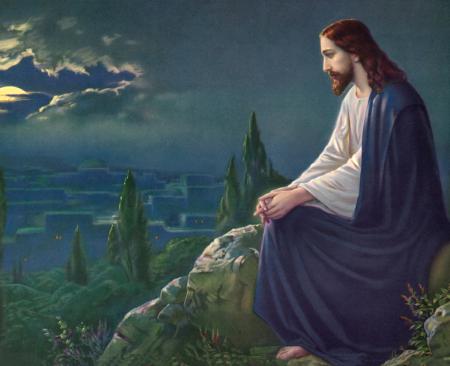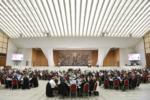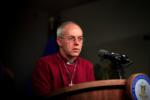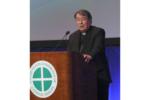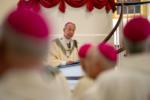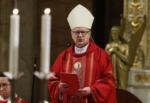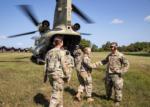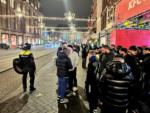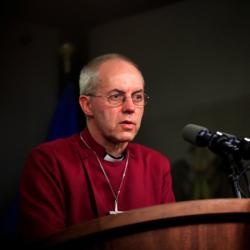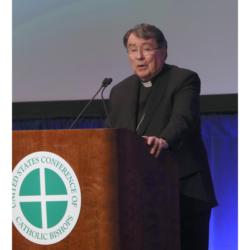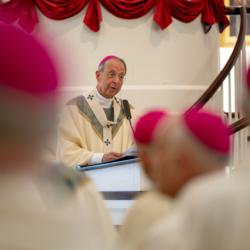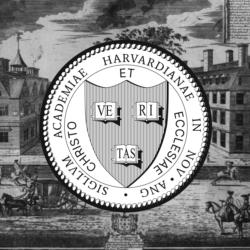Hurricane Helene: Subsidiarity and solidarity in action
Winds of about 30 miles an hour, I read, checking the weather the evening of Sept. 26. The next morning, after a calm hour of prayer, my wife and I watched something very different transpire: winds topping 70 miles an hour blowing over trees, sending debris flying and driving water through our chimney pipe and basement walls. Our township of Green Creek, North Carolina, was spared the worst of Helene, far enough away from the nearby mountains to avoid catastrophic flooding and landslides. Yet, when the sun began to shine in the early afternoon of Sept. 27, we were left wondering what had happened as we surveyed the damage.
My last column reflected on how politics should aim for the common good, as families, local communities and nations cooperate in obtaining the essential goods for human flourishing. After writing it, I saw many of the principles in action on all those levels in the aftermath of Helene.
Peeping out the window to survey the damage, we realized two trees had blocked our driveway. My boys sprang into action and began cutting up the trees to haul them away in pieces. But they soon discovered that a large oak tree had taken out the power lines around the corner. Little did we know that countless others had done the same kind of damage throughout the entire region. Groups of local men began working up and down the roads, cutting passageways through the downed trees throughout the day, making us grateful to live in a place capable of addressing problems without simply waiting for help. And yet, there were limits to what we could do, with powerlines strewn across every road.
The next day, we were surprised to hear loud French commands broadcast on speakers down the road. Seven bucket trucks from Canada pulled up to cut the rest of the trees tangled up in the electrical wires and to reattach the power lines. It was a shocking moment of deliverance from a crew who drove across the continent to help us. Even after they repaired our lines, while receiving our hearty thanks, we still had to wait a week for the power to return because the restoration work had just begun. We watched those Canadian crews drive back and forth for days as they continued their work.
The week we spent without power and internet could have been much worse. Unlike others, we never lost water, but many neighbors with a well needed to fill up jugs at surrounding houses on city water. Thankfully, we had prepared for a disaster with a solar generator, non-perishable food provisions and laundry equipment. We even joked, "Wow, Mom, all your gadgets are finally coming in handy!" The stressful week had its own blessings, with more time outside in the eerily beautiful weather that followed the storm, cooking over the fire without distracting technology. Neighbors banded together and swapped stories, and when the power came back on, we realized that others in the area, hit much harder than us by mudslides and flooding, needed our help as well.
Screaming subsidiarity as a rallying cry against outside intrusion is easy until you need solidarity. On the other hand, there is much more that families and local communities can do to become more self-sufficient, draw upon resources and talents from within and prepare for disasters. The Church teaches us to balance subsidiarity and solidarity by building a society that focuses on family first, encourages local solutions when possible, and cares for those in need.
Before the storm hit, I had just finished reading Localism: Coming Home to Catholic Social Teaching, edited by Dale Ahlquist and Michael Warren Davis (Sophia Institute Press, 2024). The book offers an impressive collection of essays on the importance of local community from leading thinkers, such as Anthony Esolen and Joseph Pearce, and those focused on practical implementation, such as Senator Marco Rubio. Dale Ahlquist explains the concept of localism in his introduction: "It is a word that already has a meaning: the support of local production and consumption of goods, local control of government, the promotion of local history, local culture, and local identity, and the protection of local freedom. It obviously favors directness and decentralization, and it is even more obviously opposed to globalism and collectivism." Michael Dominic Taylor, in his chapter, points out something that hit home in the storm: "Community happens when people depend on one another, but in a world of social media, big-box stores, and one-day shipping, we must choose to make ourselves both dependent on and responsible for our communities and our landscapes." Modern culture too often seeks radical independence, but we can only achieve the common good and find genuine happiness by depending on God and one another.
We moved to rural North Carolina for the local community, settling near some friends and other like-minded people. Many other families have been seeking the same things: a good environment to raise kids, a healthy lifestyle drawing on local food, some of which is produced at home, and the opportunity to live out our faith more fully. But community is not meant as an escape from reality or the needs of others. The Taffaro family just down the road recently opened a butcher shop, Melvin Hill Meats, processing humanely raised and properly fed livestock. Even as they seek to grow their new business, they have decided to host a charity pig roast for hurricane victims. To me, this embodies the connection of subsidiarity and solidarity, drawing our local community together to rally in support of others.
